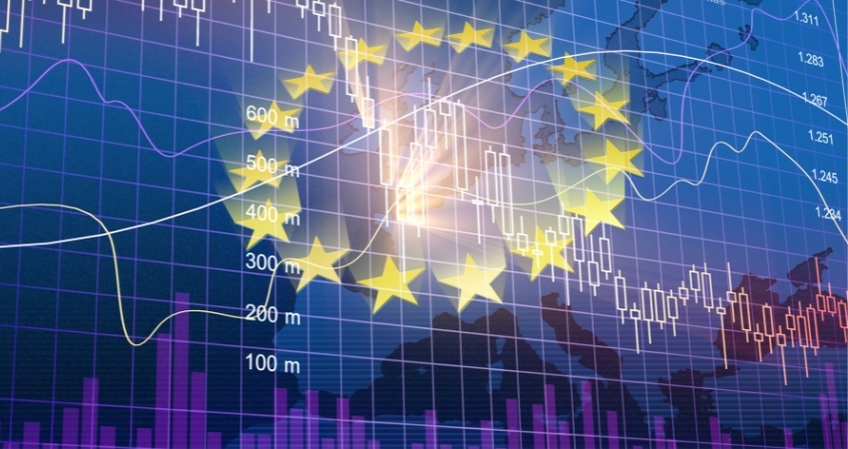Eurozone PMI: Services Sector Revives Economic Hopes During Manufacturing Woes
- Services Sector Surges: The Eurozone services PMI rose to 52.9 in April, indicating robust growth and driving the overall economic activity despite ongoing challenges in other sectors.
- Manufacturing Struggles Continue: While the manufacturing sector's PMI dropped to 45.6, slight improvements in manufacturing output offer a glimmer of hope for future recovery.
Services PMI Surges to 52.9, Manufacturing Struggles at 45.6
The Eurozone's economic outlook is showing signs of positive development as the latest Purchasing Managers' Index (PMI) data, released on April 23, 2024, points to an acceleration in growth. The services sector is at the forefront of this acceleration, pointing to a potential economic turnaround despite ongoing challenges in the manufacturing sector.
The services PMI has climbed to 52.9 in April, surpassing the forecast of 51.8 and marking a significant driver for the overall economic activity. This uptick is mirrored in the HCOB flash composite purchasing managers' index, which rose to 51.4 from 50.3 in March, reaching an 11-month high and signaling accelerated business activity across the Eurozone.
However, the manufacturing sector continues to struggle, as evidenced by the Eurozone Manufacturing PMI, which fell to 45.6 in April, missing the consensus of 46.5. Nevertheless, there is a silver lining, as the PMI for manufacturing production rose slightly from 47.1 to 47.3, indicating positive growth trends in the sector.
Service Sector Pressures Offset by Negative Goods Inflation
Inflationary pressures continue to be a concern, particularly in the service sector. Yet, the overall inflationary pressures remain moderate, with goods inflation still in the negative. This environment provides a reasonably upbeat picture of the Eurozone economy and is not expected to deter the European Central Bank (ECB) from considering rate cuts.
The economic data has had a stabilizing effect on the euro, which traded around the 1.0650 mark against the US Dollar during Asian trading. This stability is crucial as the Eurozone shifts through the current economic climate, balancing growth with inflationary challenges.
Euro Holds Steady, Gold Prices Recover, Crude Oil Unfazed
The broader market reactions to the PMI announcement have been varied. While the euro has held steady, other currencies and commodities have seen different movements. Gold prices, for instance, have traded above 2330 levels, despite taking a sharp nosedive during Asian trading. Crude oil is trading above the $82 level, remaining relatively unaffected by easing tensions in the West Asian region.
In conclusion, the latest PMI data from the Eurozone offers a glimpse of optimism as the services sector leads a growth revival. While manufacturing still faces hurdles, the slight improvements provide hope for a more balanced recovery. With moderate inflationary pressures and the ECB's potential policy adjustments, the Eurozone is poised for a gradual but steady economic upturn. The stability of the euro with this news reflects the cautious optimism that is beginning to permeate the European markets.

